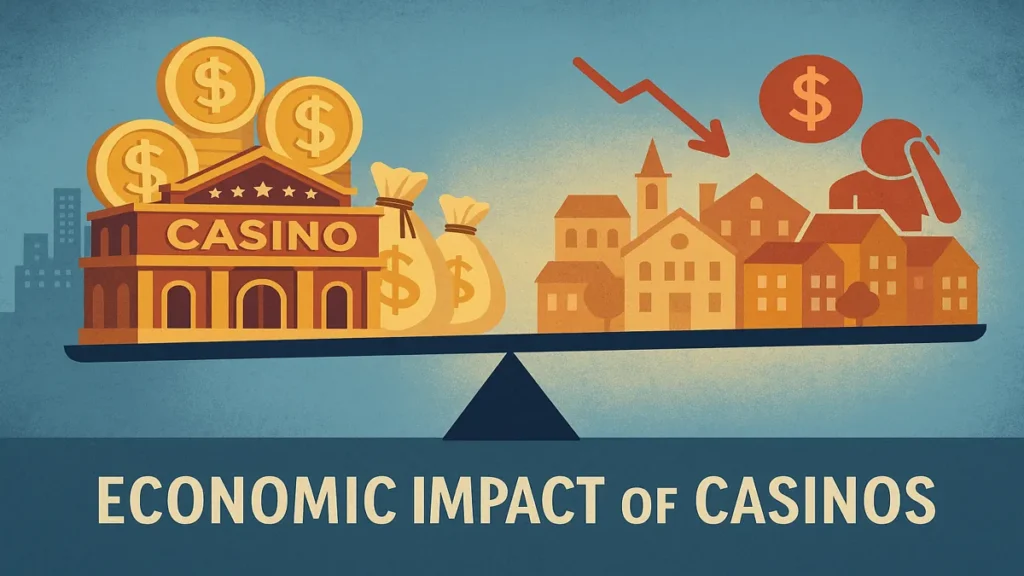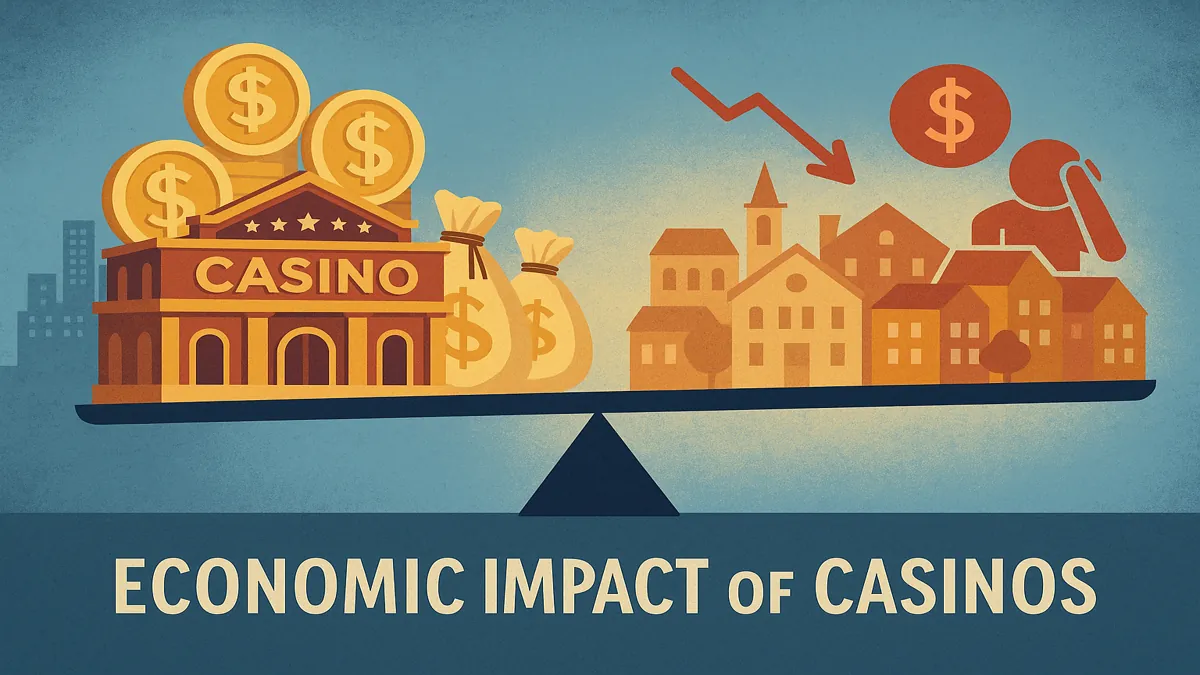The economic impact of casinos on local communities has been a topic of both enthusiasm and caution.” While some communities have welcomed casinos as a way to generate revenue and jobs, others warn of economic dependence and social costs. This article explores both the positive and negative economic impacts that casinos can have on local economies.

Positive Impacts of Casinos on Local Economies
Job creation and local employment
Casinos are labor-intensive operations. When a new casino opens, it creates jobs not only within the facility (such as dealers, servers, security, and administrative staff) but also in related sectors such as hotels, restaurants, and retail stores.
Increased tax revenue and public funding
Casinos often contribute substantial tax income to local governments. These funds can be used to improve infrastructure, education, healthcare, and public safety. Some regions earmark casino taxes specifically for community development projects.
Boost to tourism and hospitality
Casinos attract tourists, especially when they are part of larger integrated resorts. This can lead to increased hotel bookings, restaurant traffic, and entertainment spending, thus benefiting the broader tourism sector.
Revitalization of struggling areas
In economically distressed communities, casinos are sometimes seen as a tool for revitalization. They can breathe life into declining downtown areas or underutilized land, acting as anchors for further development and investment.
Negative Impacts of Casinos on Local Economies
Economic dependence and volatility
Communities that rely too heavily on casino revenue can suffer when the gambling market fluctuates. Economic downturns, competition from other jurisdictions, or regulatory changes can lead to sharp declines in income.
Displacement of local businesses
Casinos can act as self-contained economies, capturing most visitor spending within their own walls. This can lead to reduced revenue for surrounding small businesses, such as cafes, shops, and entertainment venues.
Problem gambling and social costs
Gambling addiction can lead to financial hardship, decreased productivity, and increased demand for social services. These hidden costs may offset some of the economic benefits casinos bring.
Real estate and cost of living pressure
Increased demand from casino development may raise property values and rents, making it harder for local residents and businesses to afford housing and operating costs.
Weighing the Benefits and Risks
Casinos can bring undeniable economic opportunities, particularly in areas that lack other forms of investment. However, these benefits come with risks that need to be carefully managed through regulation, community involvement, and diversified planning. Understanding both sides of the equation is essential for policymakers considering the introduction or expansion of casino operations.
